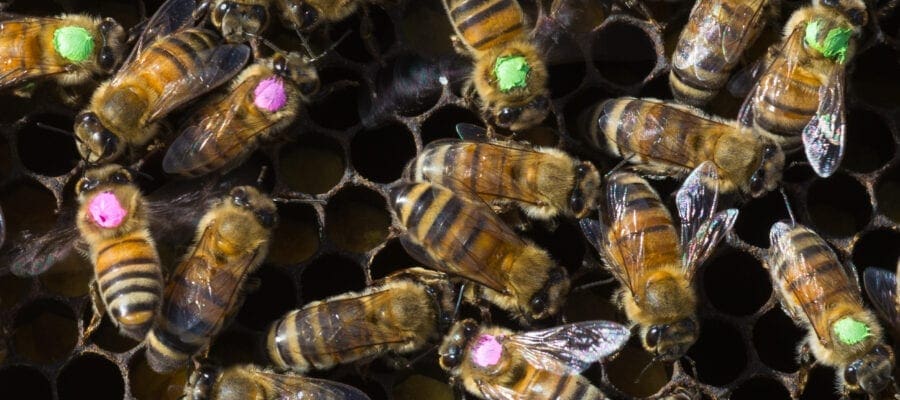For subscribers to Kitchen Garden only, this article outlines new research from the US.
Top image: Texas bee research. Picture: Marc Airhart/University of Texas at Austin
The world’s most widely used weedkiller may also be killing bees, according to new research. A study conducted at the University of Texas at Austin shows that honey bees exposed to glyphosate lose some of the beneficial bacteria in their guts, and are more susceptible to infection and death from harmful bacteria.
Because glyphosate interferes with an important enzyme found in plants and microorganisms, but not in animals, it has long been assumed to be non-toxic to animals, including humans and bees. But this latest study shows that by altering a bee’s gut microbiome, glyphosate compromises its ability to fight infection.
The researchers exposed honey bees to glyphosate at levels known to occur in fields, gardens and roadsides, and painted the bees’ backs with coloured dots so they could be tracked and recaptured. Three days later, they observed that the herbicide had significantly reduced healthy gut microbiota. The bees with impaired gut microbiomes were far more likely to die when later exposed to an opportunistic pathogen, compared with bees with healthy guts.
The researchers believe this is evidence that glyphosate might be contributing to the decline of honey bees and native bees around the world. “We need better guidelines for glyphosate use, especially regarding bee exposure, because right now the guidelines assume bees are not harmed by the herbicide,” said Erick Motta, the graduate student who led the research, along with Professor Nancy Moran. “Our study shows that’s not true.”
Find out more at https://news.utexas.edu/2018/09/24/common-weed-killer-linked-to-bee-deaths





